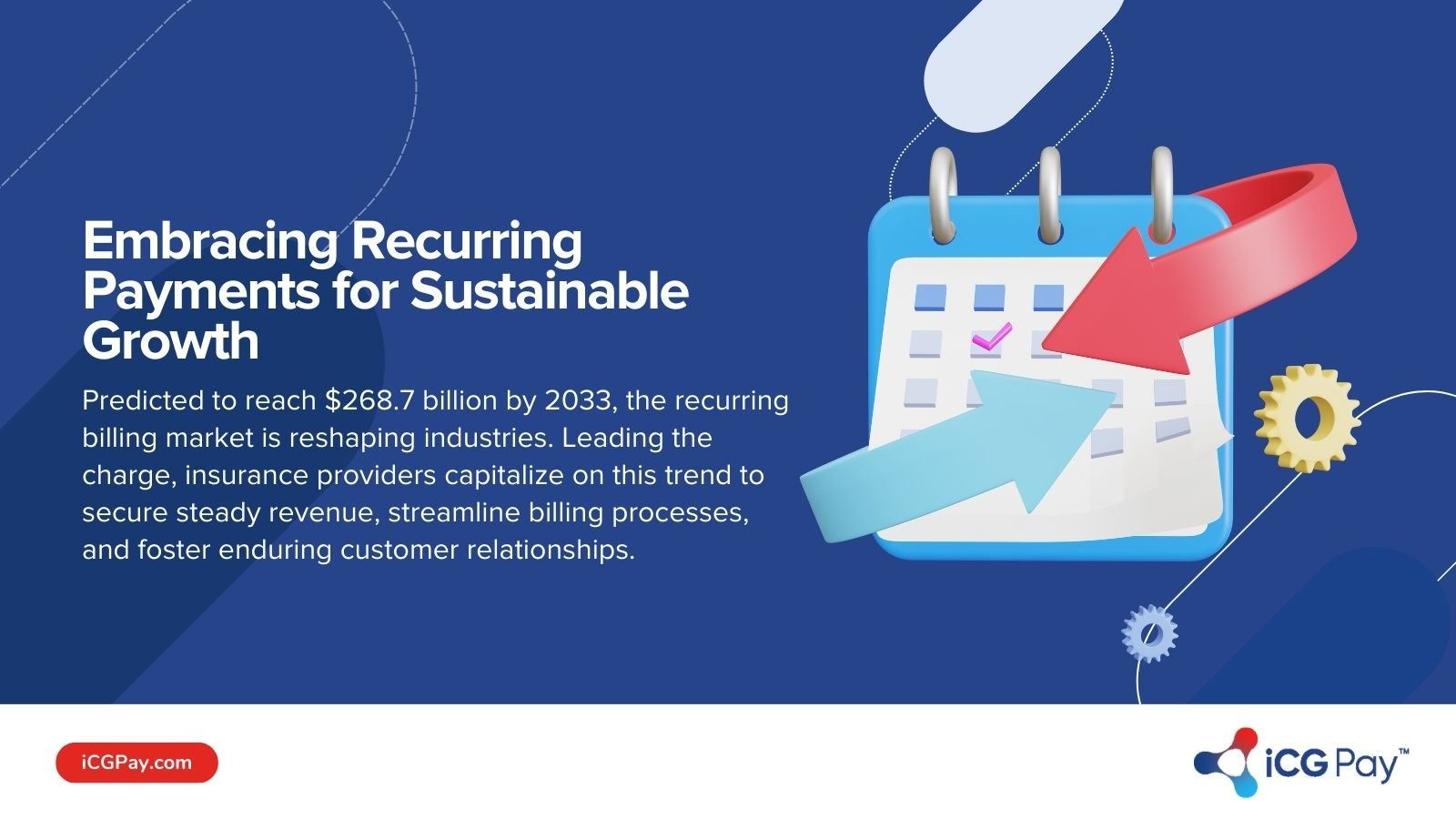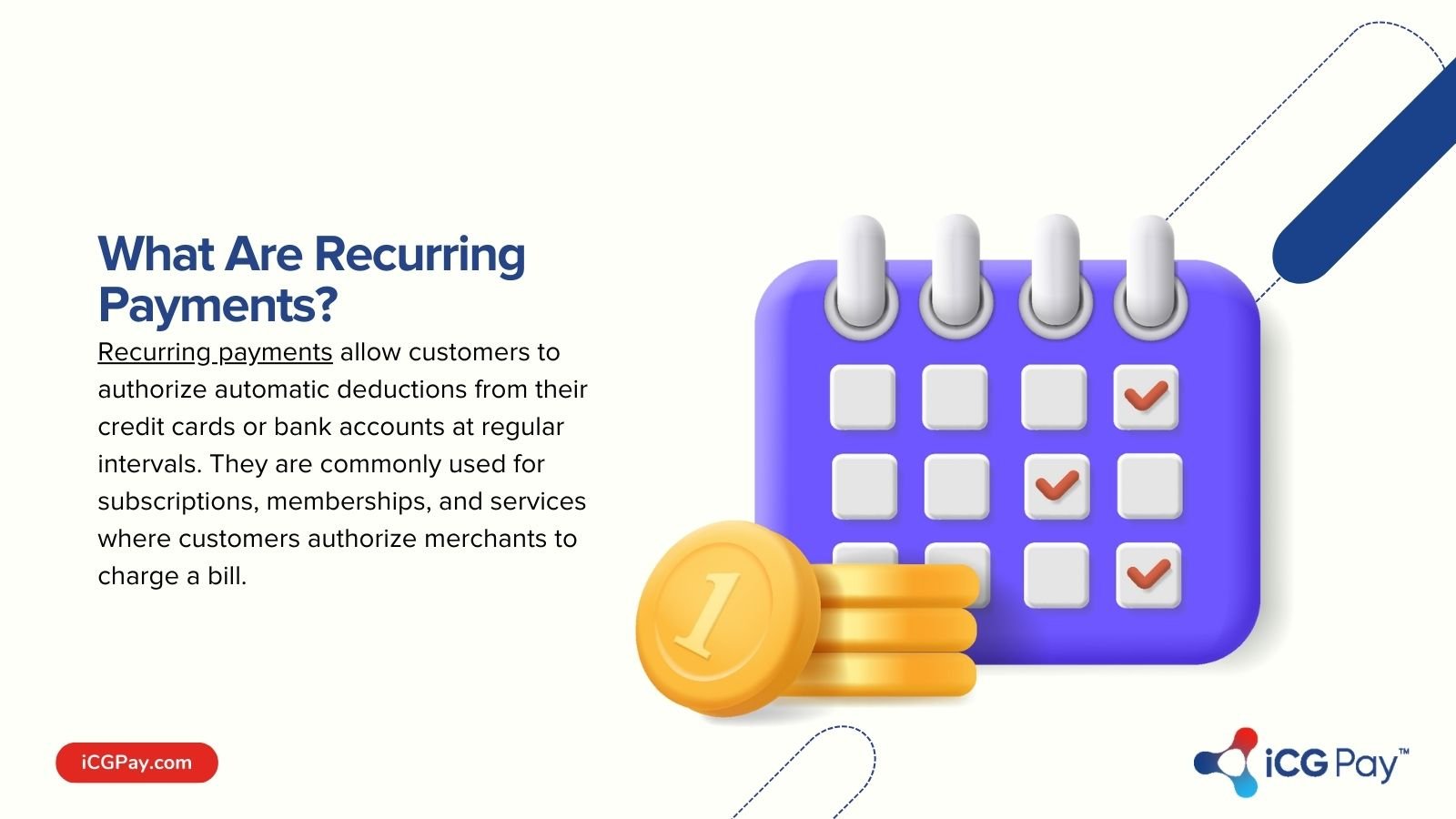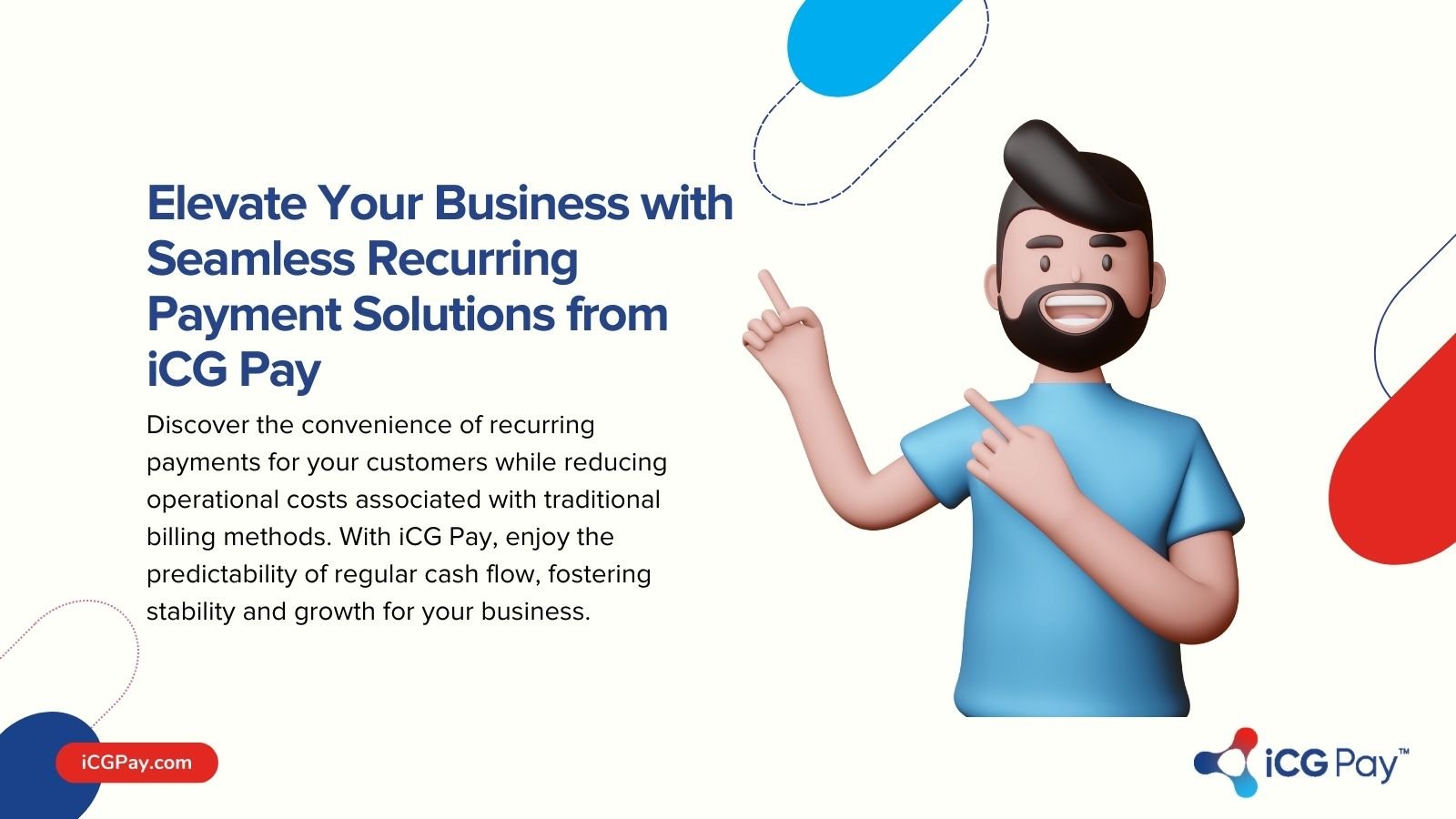Recurring payments have changed how billings are made in every industry. Thanks to the changing customer preferences, the recurring billing market size is expected to hit a valuation of $268.7 billion by 2033. Insurance providers have embraced these payment methods to establish predictable revenue streams, streamline billing processes, and boost long-term customer relationships.

Insurance companies transitioning to a recurring payment model can efficiently process home, auto, and medical insurance payments. It's a reliable system for claim processing, data management, risk management, and billing.
But first, these insurance companies need the right technology partner, like iCG Pay, formerly iCheckGateway.com, that can help them build financial health.
Let's explore how recurring payments contribute to stability and how insurance providers can integrate this technology.
What Are Recurring Payments?
Recurring payments allow customers to authorize automatic deductions from their credit cards or bank accounts at regular intervals. They are commonly used for subscriptions, memberships, and services where customers authorize merchants to charge a bill.
They offer convenience to both businesses and consumers by ensuring timely payments without the need for manual intervention. To implement recurring billing, you can set up payment reminders based on a predetermined schedule.
Customers can also use different payment methods, such as ACH processing, credit cards, debit cards, bank transfers, or SMS payments, streamlining the payment process and reducing administrative tasks.

Why Should Insurance Providers Adopt Recurring Payments?
The insurance industry is increasingly adopting online payment methods, including ACH processing, IVR payments, virtual terminals, and automated recurring billing. These technologies are essential for these companies because their main tasks revolve around collecting insurance premiums and processing customer claims.
Therefore, incorporating recurring payments automates this process. Here’s why insurance providers need to adopt this payment method:
Improved Cash Flow
According to a survey by The Financial Brand, of all customers enrolled in automatic payments, 45% said half or more of their automatic payments are transferred from a bank account, while 39% shared that half or more are charged to a debit or credit card. When payments are automated, insurance providers have a steady and predictable revenue stream.
Instead of relying on sporadic payments, they can count on regular inflows, which aids in better financial planning, budgeting, and resource allocation. This stability strengthens the company's financial health, enabling it to meet its operational expenses.
Enhanced Customer Satisfaction
Recurring payments offer policyholders convenience and peace of mind. Automating the payment process reduces the likelihood of missed payments and late fees. Customers want convenience and a seamless experience; therefore, providing this payment tech keeps them loyal to your company.
Higher customer satisfaction rates lead to more retention. This way, customers are less likely to switch to a competitor, which becomes a valuable asset for your insurance company. Additionally, recurring billing allows you to offer more payment options such as ACH and processing credit cards, attracting more customers.
Streamlined Payment Processing Workflow
Whether you run a financial institution, utility, or property company, you require a streamlined payment system. Insurance providers can also take advantage of these automated payments to eliminate the need for manual invoicing and collection efforts.
With automated systems in place, staff can focus on more strategic tasks, such as customer service and risk management. This efficiency saves time and reduces the risk of errors and delays associated with manual payment processing.
Easier Reconciliation
The National Health Interview Survey (NHIS) analysis showed that about 7% of Americans of all ages didn’t have health insurance in the first quarter of 2023. Since the majority of the population has insurance, companies have to reconcile a lot of data. For instance, big insurance providers have to deal with multiple payments daily.
Recurring payments generate consistent transaction records, making reconciliation tasks simpler and more accurate. Insurance providers can easily track payments, identify discrepancies, and reconcile accounts more efficiently. This streamlined reconciliation process minimizes the risk of accounting errors and ensures compliance with regulatory requirements.
Additionally, working with the best payment processors like iCG Pay allows these companies to use developer plugins to integrate the payment system with the accounting software.
Reduce Administration Costs
Insurance companies should adopt recurring payments because they significantly reduce administrative overhead. By eliminating manual billing and payment management tasks, such as printing and mailing invoices or chasing late payments, insurers can achieve cost savings and operational efficiencies.
These savings can be reinvested in business growth initiatives or passed on to customers through competitive pricing and improved services.
How Do You Implement Recurring Payment Solutions in Your Insurance Company?
To integrate recurring payment technologies in your insurance company, follow this guide:
Choose a Payment Processor
You need a reliable payment processing partner like iCG Pay to implement recurring billing. Here are some of the key factors to consider before choosing one:
- PCI-compliance and security standards to boost fraud prevention
- A proven track record in the insurance industry
- Customer support
- Multiple payment options
- Integration capabilities with the company's systems
Seal the Deal
Once you have picked a payment processor, negotiate the deal to get the best offerings. This approach allows you to get a comprehensive deal that will cover all your payment operations.
Start the Integration Process
Your third-party provider should integrate with your website. For instance, you can check if they have hosted payment portals, virtual terminals, or other payment technologies that make it easier for your policyholders to make payments.
Test the System
You should thoroughly test your recurring payment system before deploying. This allows you to identify any problems and verify whether it integrates with your payment gateway. You should also set up systems to handle failed payments and notify customers to update their payment information.
Partner with iCG Pay Today for Top-Notch Recurring Payment Processing
Recurring payments offer your customers added convenience. You can reduce your overall business expenses by cutting the cost of sending paper invoices and billing statements. Since these regular payments are paid on time, you can project how much cash flow your business receives, contributing to stability.

If you are ready to grow your business revenue, consider partnering with a reliable payment processing company like iCG Pay. Our insurance payment services will boost your competitive advantage and provide extra revenue.
Ready to get started? Partner with us today!




